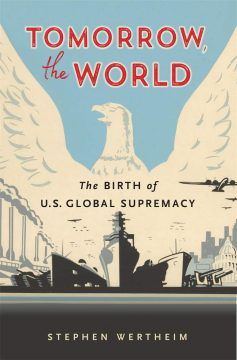Sam Lebovic in the Boston Review:
 Most Americans never encounter the simple, brute fact of U.S. military supremacy. Bases are far away; wars in remote places are waged remotely; amid the general fragmentation of social life, those who serve in the military are lumped into particular demographic niches. But on the rare occasions when Americans do think about their military, they are remarkably supportive. The military routinely ranks as the most-trusted institution in polls; even after decades of cuts to all manner of other services, the ever-expanding defense budget remains sacrosanct. Amid general rancor and paranoia about their politics, Americans are overwhelmingly content not only that their military is the world’s most powerful, but also its most expensive: it costs more than the armed forces of the next ten countries combined.
Most Americans never encounter the simple, brute fact of U.S. military supremacy. Bases are far away; wars in remote places are waged remotely; amid the general fragmentation of social life, those who serve in the military are lumped into particular demographic niches. But on the rare occasions when Americans do think about their military, they are remarkably supportive. The military routinely ranks as the most-trusted institution in polls; even after decades of cuts to all manner of other services, the ever-expanding defense budget remains sacrosanct. Amid general rancor and paranoia about their politics, Americans are overwhelmingly content not only that their military is the world’s most powerful, but also its most expensive: it costs more than the armed forces of the next ten countries combined.
In his new book, historian Stephen Wertheim seeks to explain the origins of this attitude. He zooms in on the pivotal years of World War II, focusing our attention on the frenzied and consequential planning for the postwar world order. Observing a tight network of policy-makers and intellectuals as they drafted the blueprints for what they increasingly thought of as an “American Century,” Wertheim shows that they decided to “attain armed primacy.”
More here.
